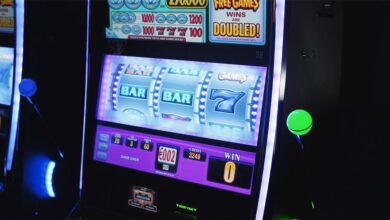Is Online Poker Legal in the US? A Deep Dive into Legislation, History, and the Push for Reform

The legality of online poker in the United States is a question that continues to stir debate, confusion, and legislative action.
In 2025, Poker Industry PRO reported that six US states, namely Maryland, Virginia, Indiana, Wyoming, Massachusetts, and New York, introduced bills to legalize iGaming, including online poker and digital casinos.
These states represent nearly 50 million people, a significant portion of the population that could soon gain access to regulated internet poker.
Notably, most of these bills include provisions to join interstate poker compacts like the Multi-State Internet Gaming Agreement (MSIGA), allowing for shared player pools and larger tournament fields.
Still, hurdles remain. Virginia’s proposal has already been postponed, and historically, many similar bills across the nation fail to reach the governor’s desk.
Yet the consistent push for legalization highlights growing public demand and a shifting political climate. The core question persists: Is online poker legal in the US?
The answer, frustratingly, is both yes and no. Online poker is legal and regulated in Nevada, Delaware, Michigan, New Jersey, Pennsylvania, and West Virginia.
In the rest of the country, the legality exists in a gray area, with federal laws intersecting state efforts and offshore platforms filling the void.
To understand why this legal inconsistency persists, we must look back at the roots of online poker in America and explore why regulation remains so complex.
The Tumultuous History Behind America’s Online Poker Ban
In its early days, online poker in the US resembled a digital Wild West. Before regulation, players logged on to unlicensed platforms where trust was earned through reputation, word of mouth, and personal experience.
As explained in a study published by the Computers in Human Behavior Reports journal, there were very few rules; you just hoped that bots or colluding opponents weren’t cheating you. By the early 2000s, online poker was thriving.
However, in 2006, the Unlawful Internet Gambling Enforcement Act (UIGEA) dramatically altered the landscape. This federal law didn’t ban online poker outright, but it targeted the financial transactions underpinning it.
By restricting US banks from processing payments to gambling sites, the government effectively choked the industry’s growth. Many major operators pulled out of the US market, while others tried to navigate loopholes, arguing that poker was a game of skill, not chance.
Then came April 15, 2011, known in the poker world as “Black Friday.” The Department of Justice indicted the three largest online poker operators, seizing $34 million from over 27,000 player accounts. It would take over three years to return that money.
The event crippled online poker in the US, sending players to shady platforms or forcing them to quit altogether. Later in 2011, the DOJ shifted its stance and opened the door for states to regulate online gambling individually.
Still, despite the legal green light, many states hesitated to take action. Concerns over addiction, fraud, and voter pushback stalled progress.
And yet, studies show that players are willing to pay an extra $1.83 per hour to play on a government-regulated site, proof that demand for safety and legitimacy is strong.
Chris Moneymaker, the Americas Cardroom Model, and the Push for Change
If anyone can be credited with igniting America’s online poker boom, it’s Chris Moneymaker. His 2003 World Series of Poker win, wherein he qualified through a $39 online satellite, made him the everyman hero of the game.
Today, as a pro and ambassador for Americas Cardroom, he’s using that fame to advocate for fully legal and regulated online poker across the US.
Moneymaker has made it clear: his goal is to ensure that one day, every American can legally play poker online from the comfort of their home. He’s currently a Pro with Americas Cardroom, a site operating in the legal gray zone that many offshore sites occupy.
While it isn’t licensed in the US, it caters to American players with a commitment to security, integrity, and fairness that rivals many regulated platforms.
Americas Cardroom deploys anti-cheating technologies, certified random number generators, and bot detection systems to ensure honest gameplay. Players are protected through strong password requirements, two-factor authentication, and 24/7 crypto-friendly banking options.
From Bitcoin to USDT, Americas Cardroom allows for fast, private, and secure financial transactions, something that regulated platforms often struggle to match.
Even without state oversight, Americas Cardroom promotes responsible gaming. Its digital tools help players track their time, set limits, and stay in control, aligning with modern calls for “Mindful Screen Time.”
In a world where digital overload is real, these built-in features help reduce the risks and could become essential for any state hoping to win public trust in future poker legislation.
Moneymaker’s presence also adds credibility. He advocates not only for legalization but also for inclusivity, working to bring more women and casual players into the game. His efforts echo the need for a new wave of regulated platforms that are secure, accessible, and community-driven.
Where Do We Go From Here? The Road to Legalization
Despite the setbacks, the tide may be turning. More states are beginning to see the economic potential of regulated online poker and actively working towards its legalization.
While few of these efforts make it to law, the consistency of the push reflects growing interest among constituents and political stakeholders.
What’s missing is a cohesive federal strategy or a larger coalition of states joining interstate poker compacts. The MSIGA has made strides, linking player pools in New Jersey, Nevada, Michigan, and Delaware, but its reach is still limited.
The more states that join, the greater the liquidity and tournament value, making the product more appealing. Another driving force? Public demand. The COVID-19 pandemic brought poker back into the spotlight.
Twitch and YouTube fueled a second poker boom as people rediscovered the thrill of the game. Many of today’s online players are well-informed, tech-savvy, and eager for legal options. They want platforms with strong consumer protections and fair gameplay. And they’re willing to pay for it.
Americas Cardroom, despite its offshore status, shows what’s possible when platforms invest in technology, security, and responsible gaming tools. Its approach sets a high bar that regulated sites should aim to meet (or exceed) if they want to win over the modern player.
Legalizing online poker across the US is about giving millions of Americans the freedom to play a game of skill in a safe, secure, and transparent environment. With consistent pressure from advocates, ambassadors, and lawmakers, that goal may finally be within reach.




